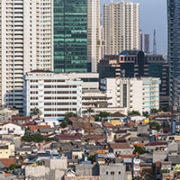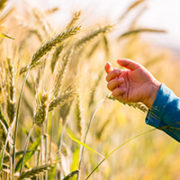
About Bihong Huang
Bihong Huang is a research fellow at the Asian Development Bank Institute, Tokyo.Closing the gender gap in peer-to-peer lending

Financial inclusion for women has been embraced by policy makers as an important development priority. However, despite women having lower risk preferences and higher creditworthiness, the gender gap in access to finance is still prevalent in the traditional credit market. This is due to various factors, such as differences in employment opportunities, legal obstacles, cultural norms, and limited access to the guarantee mechanism, among others.
Tackling the challenge of growing inequality in Asia

Income inequality is one of the most profound social, economic, and political challenges of our time. A survey conducted by Pew Research Center (2014) found that more than 60% of worldwide respondents regard the gap between the rich and the poor as a major concern. Piketty (2014) draws the unequivocal conclusion that growing inequality between the rich and the poor—between the owners of capital and the rest of society—is the normal state of affairs under capitalism, and that periods of decreasing inequality, such as during a post-war boom, are the exception, not the rule.
How does trade openness affect the environmental Kuznets curve?

The People’s Republic of China (PRC) has reformed and opened up its economy for 4 decades. However, accompanying the country’s fast-growing gross domestic product (GDP) and trade sector, environmental degradation, such as deteriorating water quality, land deforestation, pollution, and frequent haze plagues, has attracted a great deal of attention.
Is Indonesia’s subsidized rice program benefitting its children?

Indonesia’s subsidized rice program, RASKIN (also known as Operasi Pasar Khusus), constitutes the longest running and the largest in-kind transfer for poor households in Indonesia. In 2010, government expenditure on RASKIN accounted for 53% of the total household-targeted social assistance. What has been the impact of this program on child health in Indonesia? Our recent paper (Gupta and Huang 2018) is, in this regard, the first attempt in the literature to analyze this issue in the context of Indonesia.


Search
Subscribe / Connect to Asia Pathways
Subjects
- Agriculture and natural resources
- Blog
- Capacity development
- Climate change
- Economics
- Education
- Energy
- Environment
- Finance sector development
- Gender
- Governance and public sector management
- Health
- Industry and trade
- Information and Communications Technology
- Infrastructure
- Miscellaneous
- Population
- Poverty
- Private sector development
- Regional cooperation and integration
- Sanitation
- Social development and protection
- Transport
- Uncategorized
- Urban development
- Video Blog
- Water
Recent Posts
- Unraveling the Health Risks of Climate Change
- Linking Farmers to Markets Through Agricultural Cooperatives and E-Commerce in Asia
- How Can Governments Support Electricity Distribution to Achieve Net Zero in Asia?
- Promoting Corporate Climate Action Through Greenhouse Gas Accounting
- Evaluating G7 Commitments on Climate Change, Health, Well-Being, and Agriculture




Recent Comments